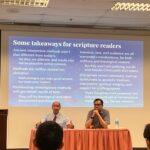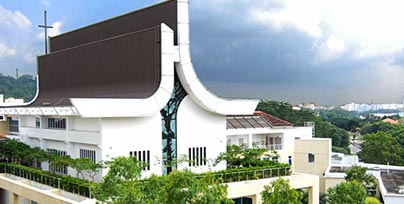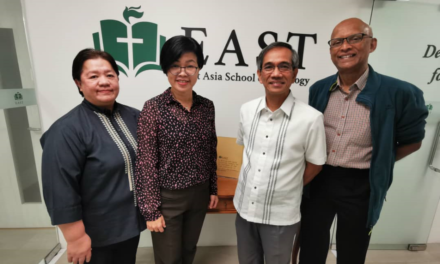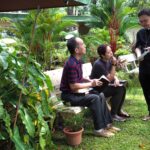
ACCREDITATION (ATESEA)

Trinity Theological College (TTC) degrees are accredited by the Association for Theological Education in South East Asia (ATESEA). TTC was one of 16 theological schools which established ATESEA in 1957. TTC faculty members are actively involved in the association and participate in the leadership, accreditation and publication of ATESEA.
Association for Theological Education in Southeast Asia (ATESEA)
The Association for Theological Education in Southeast Asia (ATESEA), formerly known as the Association of Theological Schools in South East Asia (ATSSEA), was established in 1957 in Singapore with sixteen schools as founding members with the following aims:
- To provide facilities for its members to confer concerning matters of common interest related to theological schools;
- To consider any problem that may arise as to the relations of such institutions to one another or other educational institutions;
- To recommend standards of theological education and maintain a list of member institutions;
- To promote the improvement of theological education in such ways as it may deem appropriate.
ATESEA has pioneered in establishing an Asia-wide venture of cooperation among the theological schools in the areas of research, consortium programs for advanced studies, seminar-workshops for lecturers and heads of schools, and other forms of innovative programs. As an accrediting body, ATESEA has established a set of accreditation standards to level up and improve the quality of theological education in the region.
The ATESEA office has been in two locations intermittently. In June 1973, the ATESEA office was relocated from Singapore to Manila. It was moved back to Singapore in 1981 and was again transferred to Manila in 1998. Since 2009, the office has been based at Central Philippine University in Iloilo City, Philippines.
In 2007, ATESEA celebrated its golden anniversary at Trinity Theological College, its birthplace. Part of the celebration was to revisit the Critical Asian Principle (CAP) which was formulated in 1971. CAP had served as the framework of ATESEA and its graduate degree programs in theological reflections. With the changing situations in Asia, CAP was enriched and is now called the Guidelines for Doing Theologies in Asia.
In 2009, the name of South East Asia Graduate School of Theology (SEAGST), the educational arm of ATESEA was changed to ATESEA Theological Union (ATU). As part of the restructuring of the organization, ATU turned over the offering of the Master of Theology degree program to the seminaries which have the capacity to run the program. Beginning 2010, ATU has focused its offering on the Doctor of Theology administered in the twelve (12) Centers for Theological Excellence. The centers are member schools of ATESEA which have the resources to operate the program.








